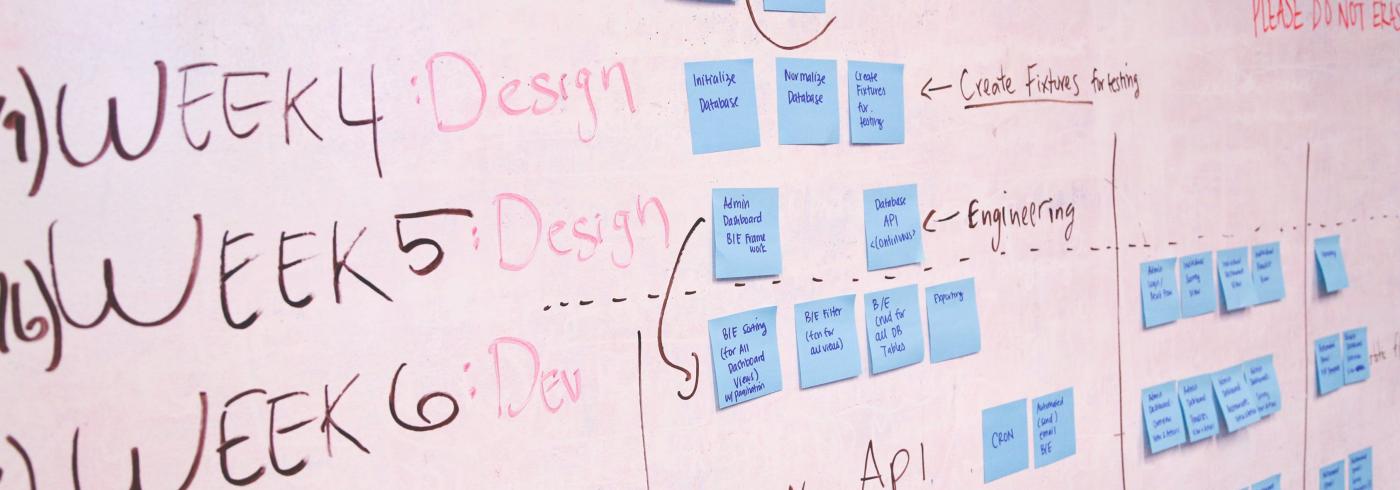
If you find yourself in a new situation where you're having to manage projects remotely, don't worry
Being a remote company isn't a new thing. Being a successful one takes a lot of time and input from every area of the business.
To be successful at managing projects remotely, what's needed is a plan, some processes and communication tactics to keep everyone on track and in the loop.
At Code Enigma, our teams and clients are all managed remotely. We're dispersed geographically all over the world (mostly Europe). We like to stick to an Agile project management methodology, but we're happy to work in whatever way best suits our clients.
We have noticed five things that are key to maintaining successful project management when you're a remote company.
1. Communication is King
This life isn't going to work for everyone. If you're not a master of communication or even project management, then you might suffer. Communication is everything for a PM.
"The key is the right communication in pursuit of resolution or delivery."
Expect your PM to have a constant stream of emails, tickets, chat conversations on Slack or IRC, discovery calls, planning sessions, scrums, retrospectives and a whole host of other ad-hoc scenarios. This is juggled over multiple clients. This is a PM's responsibility and is vital for a remote one.
A remote PM must rely on tools for this. Frequent communication mixed with some creativity keeps a good PM in touch with their team and the client. We use the ticketing system Redmine for this. It's a project management tool with issue tracking. It lets PMs manage multiple projects at a time. It has wikis and forums as well we time-tracking and role-based access.
Scheduling regular meetings are the baseline, but additional communication should be happening. Emails, daily, to the project team as well as scrums keeps everyone aware of the current situation, despite not being in the same room together. Using real-time tools like chat clients are particularly advisable because let's face it, emails can be lost, ignored, deleted or forgotten.
2. Be flexible
Being flexible with your time will take you a long way. By that, we mean to be sensitive to your colleagues' timezones.
"Planning meetings and scheduling resource is the key."
As we mentioned, we're mostly located in and around Europe, so our timezones don't differ much more than an hour or two, but it's important to factor this in when planning meetings.
If you have colleagues and clients that need you at different times, you'll have to give some serious consideration to ensuring a work-life-balance that factors it all in. Luckily, as a PM, you'll be used to juggling!
3. Meetings, meetings, meetings
You won't be physically working with your project team or client in a face-to-face scenario. Maybe even never. Having regular meetings is essential.
You should include regular project review meetings. They are a key part of SCRUM the form of reviews and retrospectives. (There are also wider internal and client-facing meetings that are more CRM-related, which PMs can feed into/participate in but aren't strictly project management-related). At Code Enigma, we use Google Hangouts mostly, but we're flexible to client need.
Keep the engagement rates high with regular touchpoints. This will do wonders for your credibility with your client. Transparency and a direct way to reach you can only improve the health of your project. It'll also minimise any risk of mistakes, or not picking up on them when they happen.
Collaboration will reduce any potential frustrations by having close access.
4. Don't sit in the same place, every day
Just because you work from home doesn't mean you have to sit in the same place, every single day. Let's assume you're adhering to the rules of having a decent chair and you're not putting your health at risk by sitting on the bed, or sofa (we have a remote working checklist to ensure our staff are kept ergonomically sound).
You're going to be vulnerable to distractions and interruptions. Try having two areas of your home that you can work from, and one external place you can escape to if your house is full of family or workmen. Remove the barrier to effective communication as well as tackling any cabin fever!
Make sure you can take your work on the go. You might as well enjoy the perks of being a remote worker! Just be sure if it's a coffee shop that your colleagues and clients can hear you in your meetings. It should go without saying that you shouldn't ever work from your bed.
5. Conduct the perfect kickoff meeting
Starting your project on the right foot is going to put you on the right path for the duration. Day one will set the pace for efficiency and productivity.
Your goal is to ensure everyone involved is on the same page from the start, regardless of the size of the project team.
By acknowledging goals, important dates and deadlines, their role within the team, the assumptions of the project, any risks and tell them how you're going to communicate with them. Set the right expectations.
Schedule reviews and accept that the project will change as you move along it (this is why we prefer the iterative nature of Agile). We always say you don't get to make a first impression twice, so give it your all